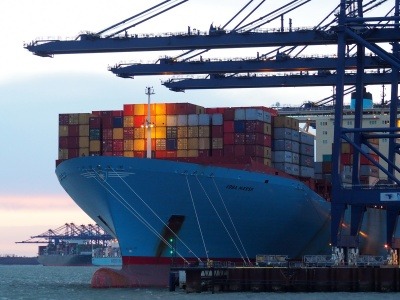UK ‘cannot continue on current trajectory’ as plastic exports to non-OECD rises
Data obtained by UK plastic trade association RECOUP reveals a significant increase, at a time that the UK and Europe is planning to ban export to these countries. It also reveals that the total amount of plastic recycling exported from the UK rose to over 600,000 tonnes and increase of over 10 per cent.
The figures, obtained through a Freedom of Information request to the Environment Agency, highlighted a significant increase in England's plastic recycling exports to non-Organisation for Economic Co-operation and Development (OECD) countries last year.
 RECOUP’s analysis of the export data reveals that since 2017, Turkey has been the primary destination for the UK's plastic waste, receiving over 25 per cent of all exported material. This represents an increase of 25,000 tonnes from the previous year, cumulatively reaching nearly 1 million tonnes sent to Turkey for recycling since 2017. Germany is noted as the next largest recipient, accepting just under 10 per cent of the UK’s plastic waste exports.
RECOUP’s analysis of the export data reveals that since 2017, Turkey has been the primary destination for the UK's plastic waste, receiving over 25 per cent of all exported material. This represents an increase of 25,000 tonnes from the previous year, cumulatively reaching nearly 1 million tonnes sent to Turkey for recycling since 2017. Germany is noted as the next largest recipient, accepting just under 10 per cent of the UK’s plastic waste exports.
The analysis further shows a noticeable shift towards Asia, with the proportion of plastic waste sent to this region nearly doubling from around 9 per cent in 2022 to almost 20 per cent in 2023. Malaysia and Vietnam, both non-OECD countries, each accounted for approximately 8 per cent of the UK's plastic exports. Other Asian destinations included Indonesia, receiving 3.4 per cent, and Taiwan at 2.5 per cent.
Tom McBeth, Policy & Infrastructure Manager at RECOUP, commented on the trend: "Our reliance on exporting plastic waste for recycling, particularly to non-OECD countries, underlines the need to develop our own domestic recycling markets." Adding that the UK has a clear need to enhance its domestic recycling infrastructure and reform policies to reduce dependency on exports.
RECOUP’s examination of the export data points towards a pattern of increasing reliance on non-OECD countries for processing the UK's plastic waste. This trend is observed against a backdrop of global market dynamics, including the growing demand for recycled plastic and the production of virgin plastic. The organisation suggests that at the moment without these export avenues, the material would likely be directed towards landfill or incineration.
The European Commission already has plans to prohibit the export of plastic waste to countries outside OECD by the year 2026. According to DG Environment this will apply to material sent from the UK to European ports.
The UK government's proposed policy to ban waste exports to non-OECD countries, as part of the Conservative party’s manifesto, has yet to be implemented. This ban is anticipated to have significant effects on the current waste export practices. RECOUP notes that non-OECD EU Member States - such as Malta, Croatia, Bulgaria, and Romania - are not included in the proposed ban, leaving around 140,000 tonnes of plastic waste in need of new processing destinations.
RECOUP questions the adequacy of using OECD membership as the sole criterion for determining a country's ability to process plastic waste. The organisation advocates for a more detailed assessment of each country's infrastructure and regulatory frameworks. It notes that OECD membership does not necessarily guarantee high-quality waste management facilities.
Implementing a ban on exports to non-OECD countries could lead to challenges, including the potential for increased landfilling or incineration, or the diversion of waste to other markets. RECOUP highlights the importance of strategic planning in waste management policies, advocating for gradual and well-considered policy changes to avoid exacerbating existing environmental issues.
McBeth said: “Consultation on a ban to non-OECD countries will be welcome, though should not be a foregone conclusion. Further consideration is needed to ensure that this is not implemented at the expense of countries like Turkey merely taking more material instead, or material making its way to developing countries by unregulated and illegal means.”
In light of these developments, RECOUP underscores the urgency for the UK to adopt more sustainable, ethical, and transparent waste management practices. The data from the Freedom of Information request and RECOUP's analysis highlight the need for the UK to develop robust domestic recycling markets and reevaluate its reliance on exporting plastic waste. The UK’s waste management sector is at a pivotal point, with the potential to adopt more environmentally sound and ethically responsible practices in handling plastic waste.
McBeth added: “Whatever the solution, the UK cannot continue on its current trajectory, and efforts must be made from the legislators to the exporters, and everyone in between, to help turn the tide in effectively, ethically and transparently managing our nation’s own waste.”









